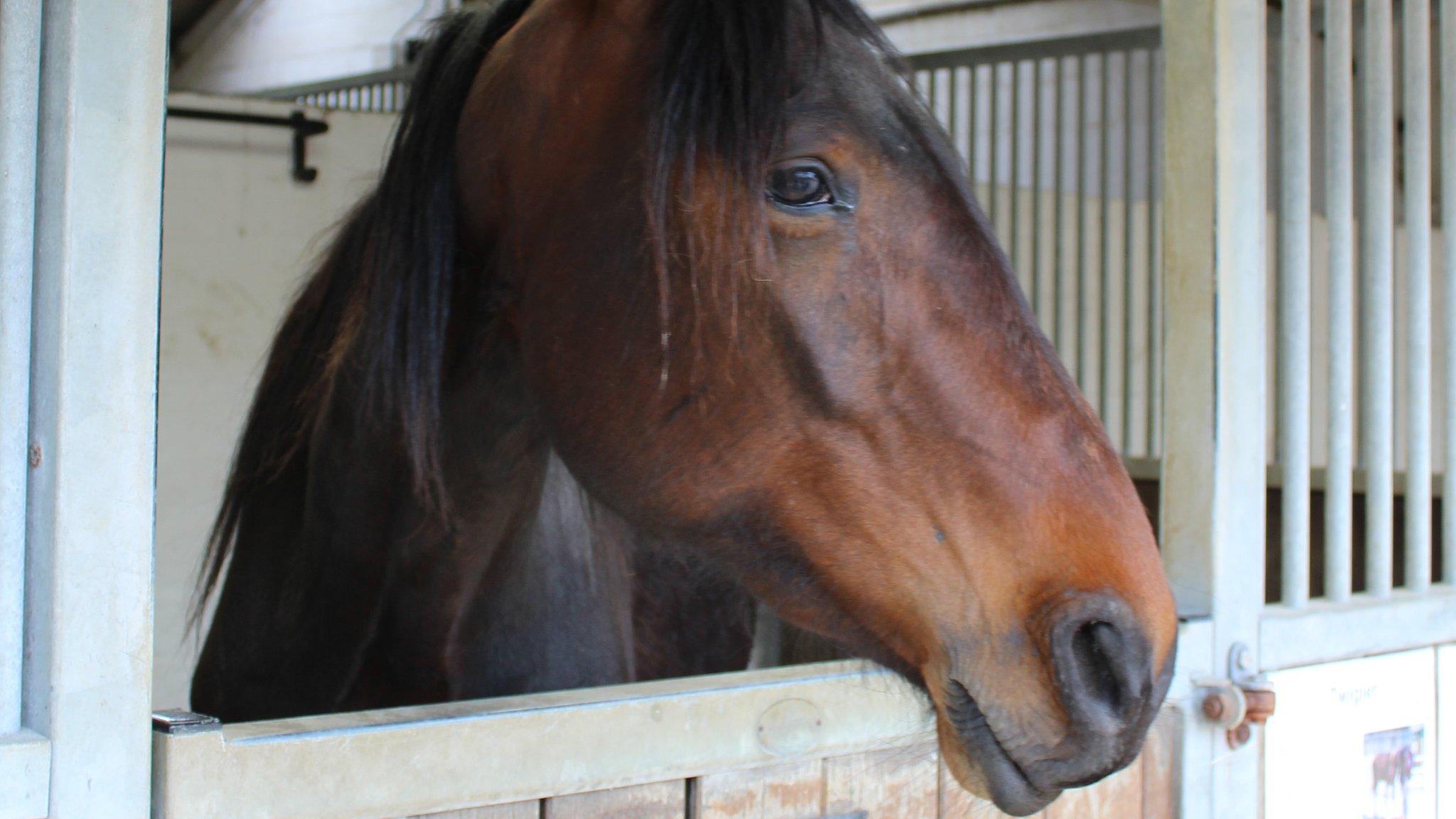Equine therapy scheme helping SEND parents
Equine therapy scheme launched for parents
- Published
An equine therapy yard working with children and young people has launched a specialist programme for parents and carers struggling due to their child’s needs.
Small Strides in Beach, South Gloucestershire, was founded in 2014 and works extensively with children and adolescents with special educational needs and poor mental health.
But now it has secured funding to offer therapy sessions to parents who are seeing their own mental health deteriorating due to their caring responsibilities.
Founder Jenny MacSharry said for her work with young people to be effective, their support networks needed help too.
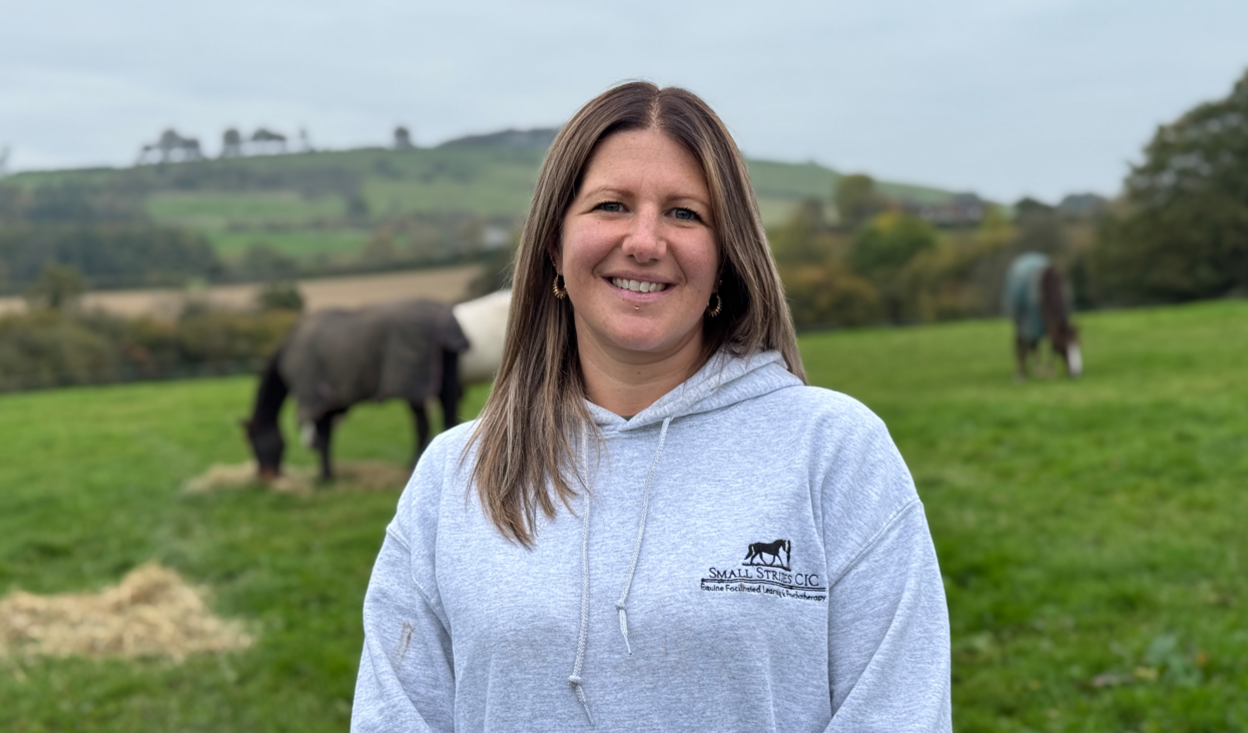
Equine therapist Jenny MacSharry realised parents also needed support
“Equine-assisted learning helps people develop life skills and a greater sense of self, Ms MacSharry told BBC West.
"It’s good for mental, emotional and physical wellbeing,"
The Small Strides team helps clients improve their confidence and self-esteem and reduce stress and anxiety, as well as improve non-verbal communication skills.
“What we noticed was that some of the parents were really struggling,” Ms MacSharry said.
“Children were coming to us and learning a lot about themselves and how to regulate their emotions, but going home and their parents were still stressed and overwhelmed with what they’ve got going on.”
'Horses read energy'
Eight participants in a pilot scheme in July this year reported a reduction in stress and anxiety and improved self-esteem.
They also reported a boost to their concentration and better experiences of their social interactions.
Small Strides is seeking further funding so it can continue the work, and is also adapting its model so more parents can access therapy in the form of day retreats.
Therapy sessions can involve horse care such as grooming and mucking out, leading the animals around obstacle courses, or liberty work, where the horse is free in an open space.
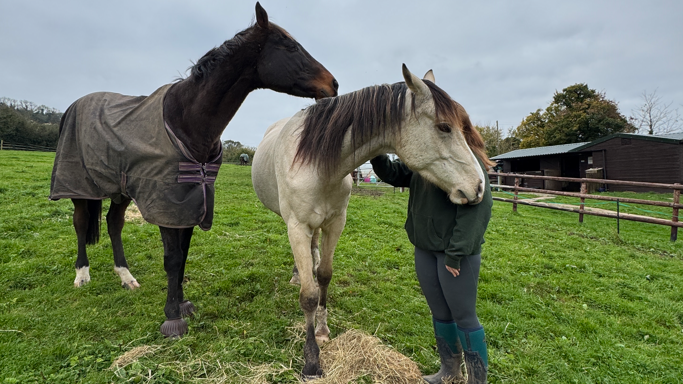
Some therapy sessions involve the horses being free in an open space
Establishing a relationship with the horses during a session is key.
“Horses don’t read our words, they read the energy inside,” Ms MacSharry said.
“If you go into the stable saying ‘I’m fine’ but in reality you are very anxious, the horse might try and nip you, it might turn its bum and walk away, it might look really scared.”
“That would be my invitation to say ‘what maybe is going on for you right now?’”
She added: “This is the kind of conversation we bring in, getting people to bring that developmental self-awareness.
“Within that, whatever comes up, we’d pause, we’d talk about it and see if we want to go further in working with that.”
'Connecting with nature'
Adele, who has three neurodivergent children, found her therapy sessions allowed her to spend time outdoors and meet new people, as well as make discoveries about herself.
“This environment is really nice because you are connecting with nature as well as other people and there are no distractions here - as part of this journey I have learned that I have ADHD," she said.
“Interestingly the stress and pressures don’t come from [my] children themselves - they are amazing and they often think so differently it’s really enlightening.
“The stresses come from the systems and the lack of support.”
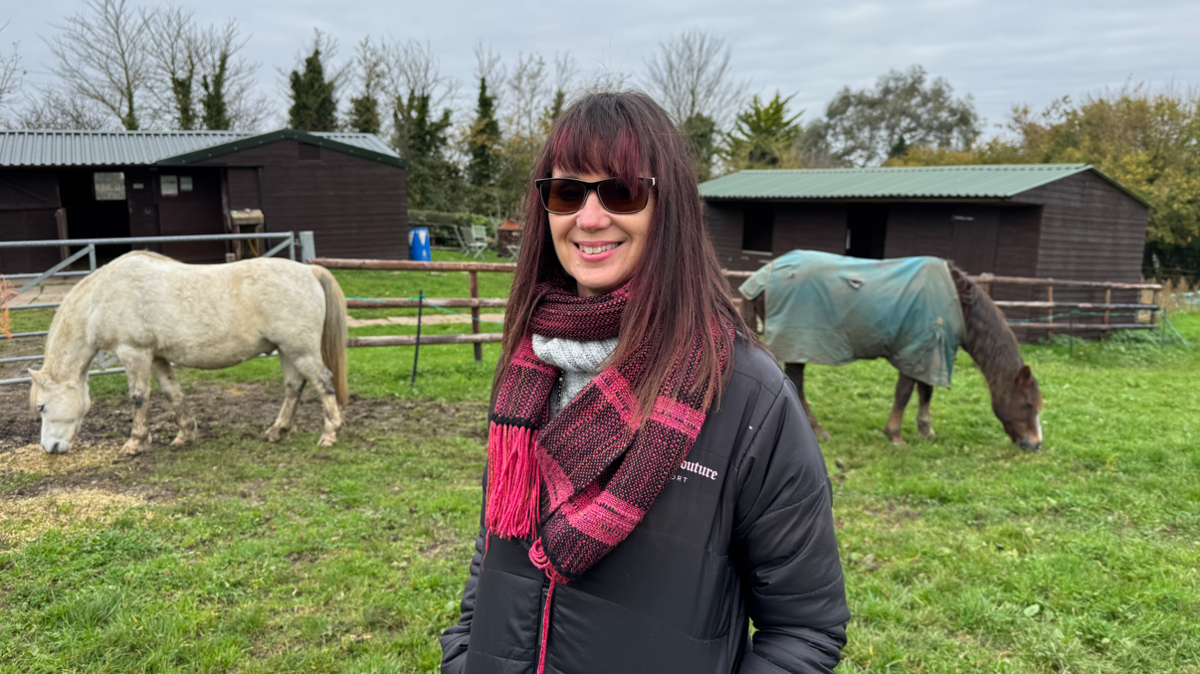
Adele said the sessions had a "knock-on effect" in her daily life
She said she had initially been nervous around the horses and quite distracted, but now felt much calmer.
“[Equine therapy] is about looking after yourself, it is about educating yourself and it’s about all of those things you do to regulate yourself - it has a knock-on effect.”
Follow BBC Bristol on Facebook, external, X, external and Instagram, external. Send your story ideas to us on email or via WhatsApp on 0800 313 4630.
Related topics
- Published9 February 2024
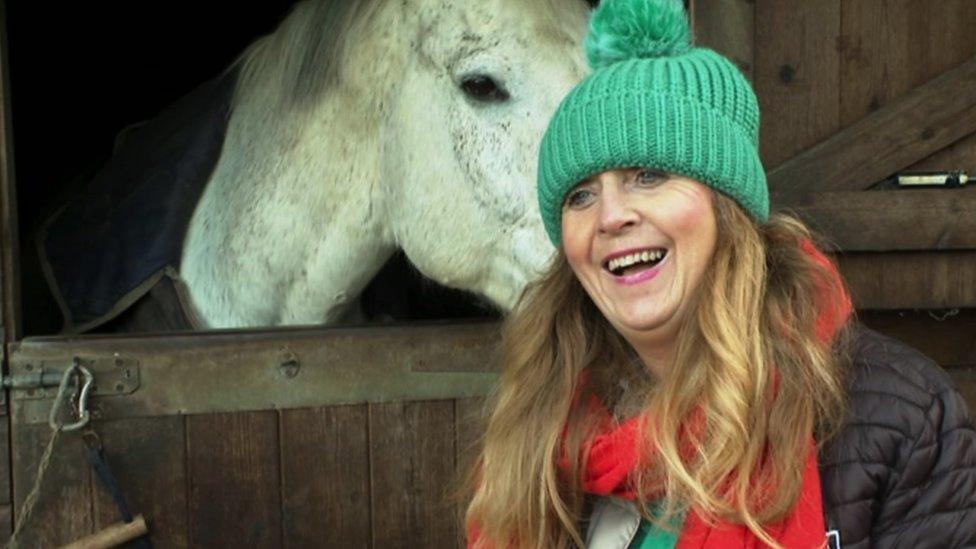
- Published14 September 2023
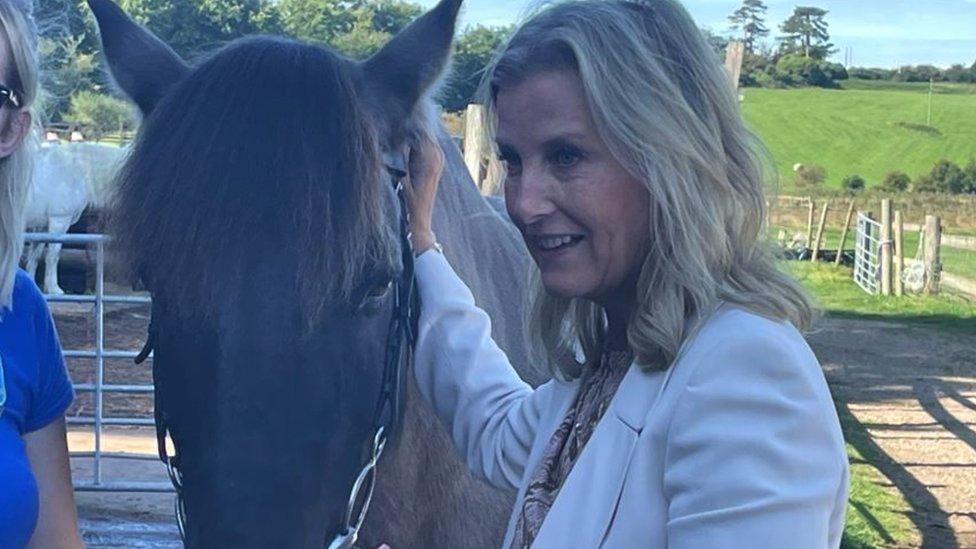
- Published2 August 2021
